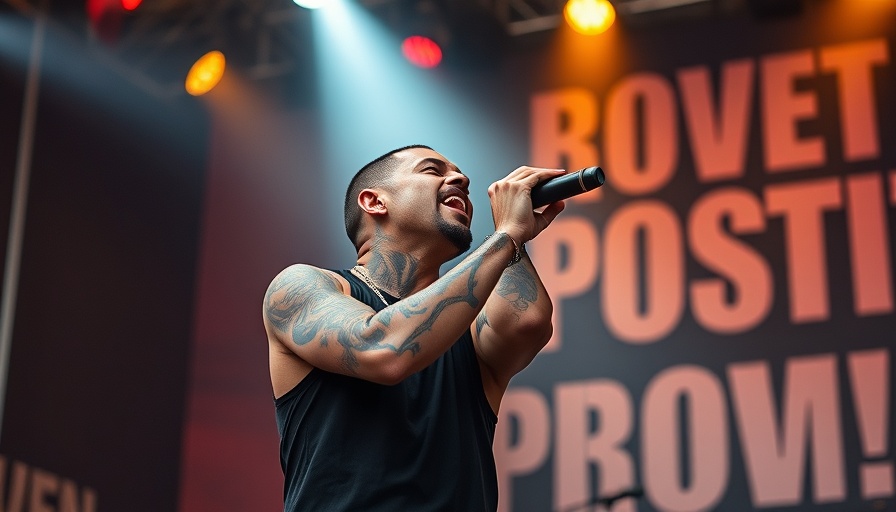
Understanding the Controversy
In a recent event that ignited significant discussions across media platforms, UK punk-rap duo Bob Vylan delivered a performance steeped in anti-Israel rhetoric. The BBC, which aired the performance, had classified the duo as a "high risk" prior to the event, highlighting ongoing concerns about the impact of political messaging in music. This incident unfolds against a backdrop of rising tensions in global geopolitics, where music often serves as both a reflection and a commentary on societal issues.
Why the BBC Apologized
The backlash against the BBC was swift. Following the performance, the broadcaster issued an apology for allowing what they termed "offensive and deplorable behaviour" on their airwaves. This incident raises essential questions about editorial oversight and the balance between artistic freedom and societal responsibility.
The Role of Music in Political Discourse
History has shown that music is a powerful medium through which social and political messages are conveyed. Think of classics from Bob Dylan and Rage Against the Machine, who have long been vocal proponents of social justice. Bob Vylan’s performance mirrors this tradition but also complicates it within today’s polarized context. In an era where messages can ignite protests or even violence, the role of artists as influencers becomes increasingly critical.
Cultural Rhetoric and Its Consequences
As controversial performances raise the stakes for both the artists and media entities involved, they also prompt discussions about cultural rhetoric. How artists like Bob Vylan wield their platforms can lead to national discourse, but also to severe backlash. This incident illustrates a clash between free expression and public decency standards, leading to discussions about where the line should be drawn.
Counterarguments: Artistic Freedom vs. Accountability
Supporters of Bob Vylan may argue that artistic expression is paramount, and that it serves a deep societal purpose by critiquing the status quo. However, this perspective often encounters resistance from those who feel that certain messages can incite hate or misunderstanding. It opens a dialogue regarding the extent to which society should tolerate provocative art, especially when it comes to sensitive geopolitical issues.
Potential Future Trends in Music and Political Statements
Looking ahead, we can expect that the intersection of music and political statements will continue to evolve. As more artists engage with political themes, it's likely we will see a broader spectrum of responses from media and the public alike. The rise of social media as a platform for music sharing can amplify these messages even further, leading to quick and potent cultural reactions.
Conclusion: Navigating Complex Narratives
The controversy surrounding Bob Vylan's performance with the BBC serves as a reminder of the delicate balance artists must strike. As they navigate their own platforms while being cognizant of the broader impact of their words and actions, audiences must engage critically with the narratives being put forth. This complex landscape ultimately underscores the potency of music as a form of expression, and the responsibility that comes with it.
As society grapples with these dynamic conversations, it's crucial for individuals to remain informed about the multiple facets of ongoing discussions in the cultural and political spheres. The nuances of artistic freedom, societal values, and the power of music will continue to resonate, prompting both action and reflection.
 Add Element
Add Element  Add Row
Add Row 



 Add Row
Add Row  Add
Add 


Write A Comment